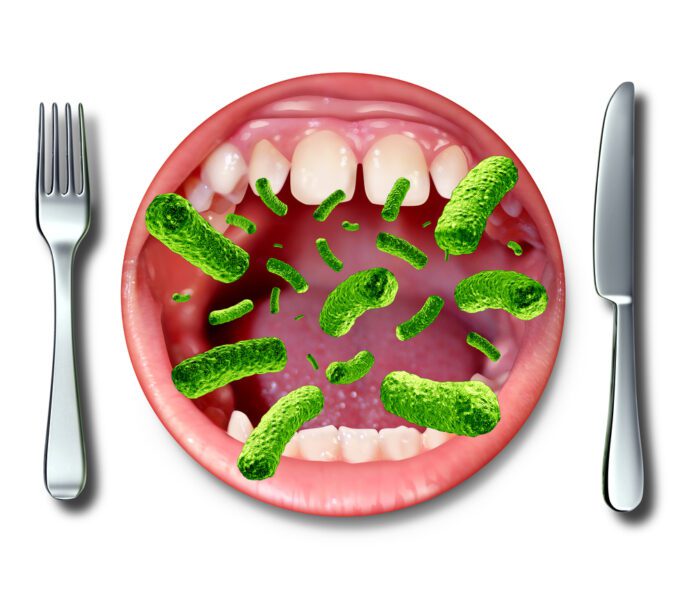Overview
Foodborne illness, more commonly referred to as food poisoning, is the result of eating contaminated, spoiled, or toxic food.
Most food poisoning is caused by eating food that has certain types of bacteria or viruses. When you eat these foods, the bacteria keep growing in the digestive tract. This causes an infection.
Foods can also make you ill if they have a toxin or poison made by bacteria growing in the food.
Several types of bacteria can cause food poisoning.
Cause
● Bacteria and Viruses: Bacteria and viruses are the most common cause of food poisoning. The symptoms and severity of food poisoning vary, depending on which bacteria or virus has contaminated the food.
● Parasites: Parasites are organisms that derive nourishment and protection from other living organisms known as hosts. The most common foodborne parasites are protozoa, roundworms, and tapeworms.
● Molds, Toxins, and Contaminants: Most food poisoning is caused by bacteria, viruses, and parasites rather than toxic substances in the food. But some cases of food poisoning can be linked to either natural toxins or added chemical toxins.
● Allergens: Food allergy is an abnormal response to a food triggered by the body’s immune system. Some foods, such as nuts, milk, eggs, fish, crustacean shellfish, tree nuts, peanuts, wheat or soybeans, can cause allergic reactions in people with food allergies
Symptoms
Symptoms can vary depending on the source of the infection. The length of time it takes for symptoms to appear also depends on the source of the infection, but it can range from as little as 1 hour to as long as 28 days.
Common causes of food poisoning will typically include at least three of the following symptoms:
● abdominal cramps
● diarrhea
● vomiting
● loss of appetite
● mild fever
● weakness
● nausea
● headaches
Symptoms of potentially life-threatening food poisoning include:
● diarrhea persisting for more than three days
● a fever higher than 101.5°F
● difficulty seeing or speaking
● symptoms of severe dehydration, which may include dry mouth, passing little to no urine, and difficulty keeping fluids down
● bloody urine
If you experience any of these symptoms, you should contact the doctor immediately.
Treatment
Most people with food poisoning recover at home and don’t need any specific treatment, although there are some situations where you should see a doctor.
Most mild cases of food poisoning are treated the same as stomach flu (gastroenteritis). If you have diarrhea or vomiting, you may lose a lot of fluids (get dehydrated). The goal is to replace lost fluids and ease symptoms. You may also be prescribed antinausea medicine to prevent vomiting.
You should contact GP if:
● symptoms are severe – for example if you’re unable to keep down any fluids because you are vomiting repeatedly
● symptoms don’t start to improve after a few days
● you have symptoms of severe dehydration, such as confusion, a rapid heartbeat, sunken eyes, and passing little or no urine
● you’re pregnant
● you’re over 60
● baby or young child has suspected food poisoning
● you have a long-term underlying condition, such as inflammatory bowel disease (IBD), heart valve disease, diabetes, or kidney disease
● you have a weak immune system – for example, because of medication, cancer treatment, or HIV



